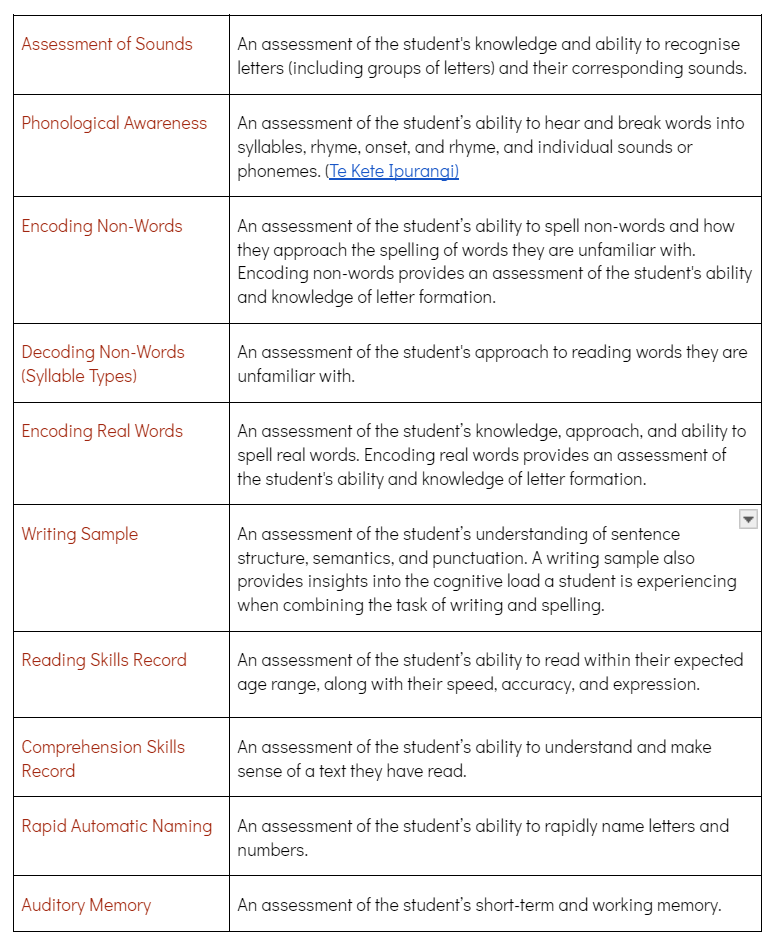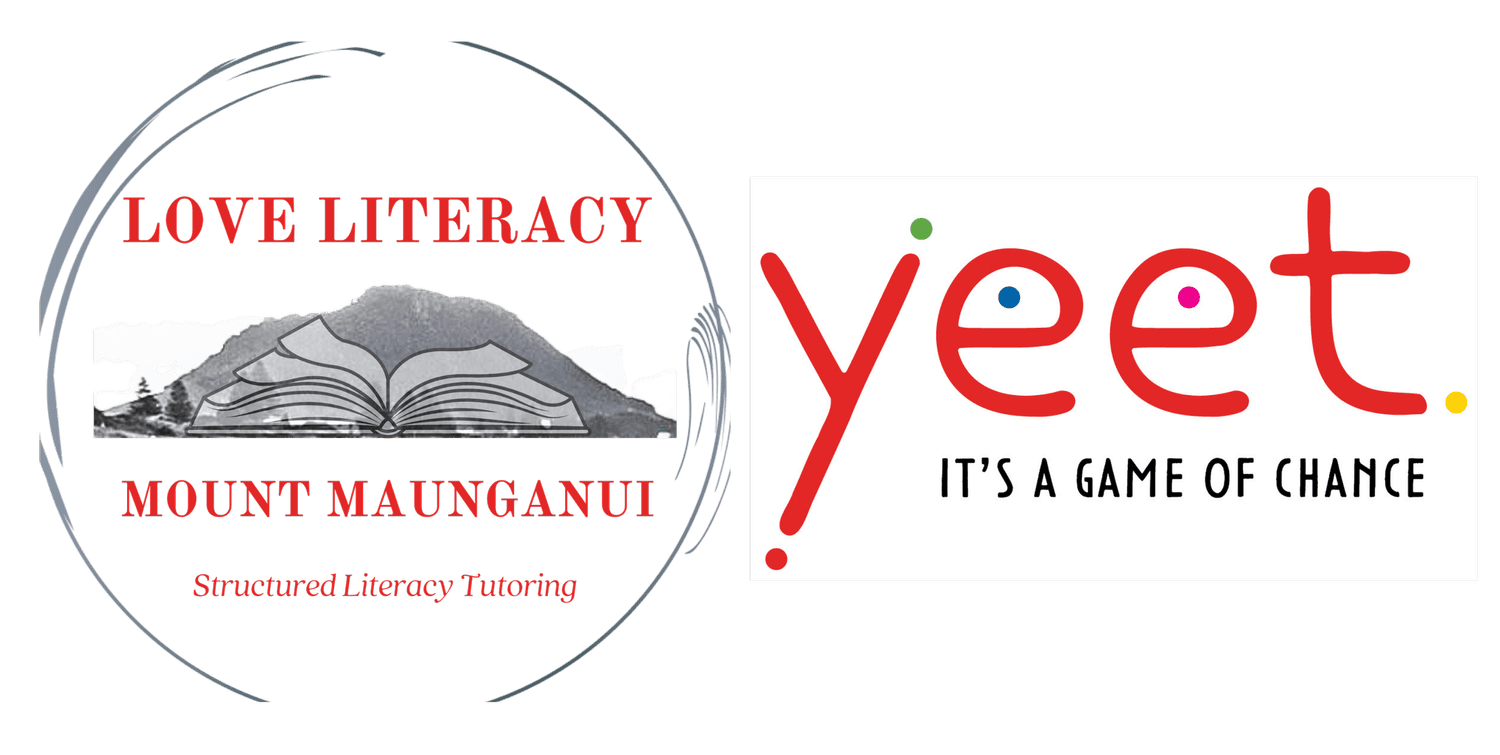Why do I assess?
What is assessment?
Assessment is the process of collecting information, and it can allow us to understand more about the progress of an individual. Assessments support to identify strengths and challenges, and from that, conclusions and recommendations can be reached.
What is a literacy assessment?
A literacy assessment therefore is the process of collecting specific information in regards to literacy through various screening tools, to understand the strengths and challenges an individual has in the area of literacy. In this case, literacy means reading, writing, and spelling.
Further to this, regular progress assessment and review for individual learners enables me to measure their literacy progress over time and supports me to understand where my teaching has been effective, and perhaps not so effective. It can also support in identifying whether further more formal assessment is required.
Different types of assessment.
There are many different types of literacy assessment, including formal assessment, informal assessment, formative assessment, summative assessment, literacy screening, diagnostic literacy assessment, single-point estimates, and progress monitoring. The main types of assessment I carry out is what is called literacy screening.
What should we assess?
So how do we know what to assess for literacy? We know that a structured literacy approach to teaching is essential. A structured literacy approach provides:
explicit, systematic, and sequential teaching of literacy at multiple levels – phonemes, letter-sound relationships, syllable patterns, morphemes, vocabulary, sentence structure, paragraph structure, and text structure.
- Phonemic Awareness
- Phonics
- Fluency
- Vocabulary
- Comprehension
Phonological Awareness (Phonemic Awareness)
Letter-sound relationship awareness (Phonics)
Oral reading benchmark fluency assessment (Fluency)
Nonsense word assessment (Phonics)
Reading assessment that includes a comprehension element (Vocabulary, Comprehension)
Spelling assessment (Phonics)
There are three additional things that I assess for, to create an overall learning profile as following:
I have blogged about these before, please click on the links above read more about Writing, RAN, and Working Memory.
Here are some excellent resources to build your assessments with:
Phonemic Awareness: – I like Emma Nahna’s phonological awareness skills check. You can get this free here.
Phonics: – there are loads of free informal phonics checks out there if you search, however I find the best way to find what letter sounds your students know and don’t know, simply flick through a comprehensive soundpack that has all 44 sounds and their corresponding spellings. Note the sound and symbol combination they DON’T know. You can get a soundpack here. I also use a nonsense word assessment for both reading and spelling. This gives me a great indication of a students strategy for reading and spelling unknown words. It’s very eye opening. You can download a free nonsense word test here. (Note – don’t use the same test for reading and writing!). Finally, I do a real word spelling test based on my scope and sequence.
Fluency – This is a big one. I’m a big fan of the Dibels Texts which you can download here. If you don’t know how to get started with Dibels, Emma Nahna from Sound Foundations for Literacy has put together this excellent post here. I use the Dibels texts to assess Oral Reading Fluency (ORF) and I use the Maze to check comprehension. After I have done my 1 min ORF with a student, I then use Hasbrouk and Tindel’s Fluency Norms Chart to see where they are sitting. Are they reading at the appropriate rate? Here is a good overview of ORF plus the chart. Finally, I use the Fluency Rubric by Rasinski.
Vocabulary – This is a little more variable, I listen carefully to the oral vocabulary used within our assessment, I ask lots of questions, and then I look at how the student writes, does the written vocabulary match the oral vocabulary?
Comprehension – As noted above, I use the Maze text from Dibles.
I have popped these elements into a handy table to highlight what they will tell me:

When all of this comes together, it can paint an in-depth picture of where a student is sitting with their literacy and provide a starting point for teaching. A good assessment should result in a written report that details the information collected and provides an outline of strengths and weaknesses.
What next?
Finally, intervention planning should be detailed in the report that meets the specific gaps. There is no point in teaching a student something they already know. Documentation from the report is essential to determine eligibility for special education or any support services needed. It may also act as a tool for a parent to advocate for their child.
From there, aligning the assessment and report with a robust, sequential and systematic scope and sequence is essential to begin teaching.
This blog post was originally written in February 2024 by Heather Down and updated 28 January 2025 by Heather Down.
Further reading:
https://theeducationhub.org.nz/literacy-and-assessment/
https://inclusive.tki.org.nz/guides/dyslexia-and-learning/understanding-structured-literacy/
Testing and Evaluation
